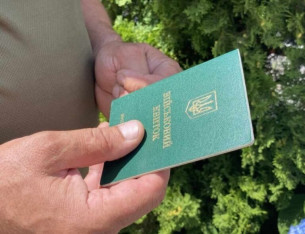Postponement of care for a disabled person of group I or II
Receiving a deferment from mobilization is an important right for citizens who perform duties of caring for persons with disabilities of group I or II. This right is ensured in accordance with the legislation of Ukraine and is granted to those who have a need to provide assistance to a person with a disability, confirmed by relevant documents. However, in order to properly process a deferment, it is necessary to go through several legal stages. In this process, legal assistance is of particular importance, because a professional can ensure the accuracy and compliance of all stages with the requirements of the law.
Legal stages of deferment for care of a disabled person of group I or II
Receiving a deferment for caring for a disabled person of group I or II goes through several legal stages:
- Legal consultation on the postponement of care for a disabled person of the I or II group. Collection of documents: Before applying to the military commissariat, it is necessary to collect a package of documents confirming the fact of caring for a disabled person. This includes medical certificates on the state of health of the disabled person, documents on the establishment of disability, as well as documents confirming the family relationship or guardianship.
- Submission of an application: A lawyer for deferred care for a disabled person of the I or II group submits an application to the military commissariat. In the application, it is necessary to specify the reasons for the postponement and provide all the necessary documents.
- Review of the application: at this stage, lawyers for deferment of care for a disabled person of group I or II are waiting for the military commissariat to consider the application and make a decision on granting or denying the deferment. In the case of a positive decision, the person is granted an official deferment from conscription.
- Appealing the decision: If the military commissariat refused to grant a deferment, the person has the right to appeal this decision administratively or through a court.
All stages require accuracy and attention to detail, therefore, proper legal support is important for successfully obtaining a deferment.
Under what conditions can the service of registration of deferment due to care of a disabled person of group I or II be provided?
A deferment for caring for a disabled person of group I or II is granted under the following conditions:
- Presence of a disabled person of group I or II: The deferment is granted only if the person is caring for a disabled person of group I or II. This must be confirmed by relevant medical documents.
- Actual care: The person must actually care for the disabled person, which can be confirmed by the testimony of neighbors, relatives or other documents.
- Absence of other caregivers: It is important that there are no other persons capable of caring for the disabled person. If there are other relatives or guardians who can assume these responsibilities, the deferral may be denied.
If all conditions are met, the deferment is granted in accordance with the law.
Under what conditions can the service of obtaining deferment for care of a disabled person of group I or II not be provided?

The disabled person is not a close relative or guardian: If the disabled person is not a close relative or the person does not have an officially registered guardianship, legal aid for deferred care for a disabled person of group I or II is not provided.

Availability of other persons capable of caring for the disabled person: If there are other persons capable of caring for the disabled person, the deferral cannot be granted.

Insufficient evidence: If the documents submitted to the military commissariat do not support the need for care or do not meet the requirements, the deferral will be denied.
How can a person who cares for a person with a disability of group I or II independently obtain a deferment?
The process of deferment for care of a disabled person of group I or II can be carried out independently, for this it is recommended:
- Familiarize yourself with the legislation: Study the laws and by-laws regulating the issue of deferment for the care of a disabled person. Find out the list of documents for postponement of care for a disabled person of group I or II.
- Contact the military commissariat: If there are questions, they can be asked directly at the military commissariat, where specialists are obliged to provide the necessary advice.
- Consult with a lawyer: To avoid possible mistakes and receive clear recommendations, it is worth consulting with a lawyer who specializes in military law.
It is possible to issue a deferment on your own, however, to avoid errors and ensure the accuracy of the documents, it is recommended to consult a lawyer, which significantly increases the likelihood of successfully obtaining a deferment.
Frequently asked questions about deferment for persons who care for people with disabilities of group I or II
Question
How to find a lawyer on deferred care for a disabled person of group I or II?
Answer
To find a lawyer for registration of a deferment for the care of a disabled person of the I or II group, you can use the following tips. First contact your local legal advice or bar association where there may be welfare specialists. Check reviews of lawyers on online platforms such as Google or specialized sites to find a specialist with the necessary experience. Contact organizations that support people with disabilities, as they may have contacts of lawyers who specialize in such cases. Finally, consult with friends or relatives who may have already faced similar issues and can recommend a lawyer.
Question
How much does a legal consultation on deferred care for a disabled person of group I or II cost?
Answer
The cost of legal advice on deferment from service for the care of a disabled person of group I or II may vary depending on the region and the experience of the lawyer. Some lawyers offer the first consultation free of charge, especially if the case has prospects for further cooperation. There may also be discounts for socially vulnerable categories of the population. It is recommended to clarify the terms of payment and possible additional costs with the selected specialist in advance.
Question
How much does the deferred care for a disabled person of group I or II cost?
Answer
The cost of deferred care for a disabled person of group I or II may vary depending on the country and local conditions. Deferral from military service is usually free for caregivers of a disabled person, but requirements may vary. In Ukraine, for example, such deferment is provided free of charge, but it is necessary to provide relevant documents that confirm the need for care. In some cases, there may be additional administrative costs, but these are usually minor. To find out exact information about the cost and conditions, it is better to contact the relevant local self-government bodies or military commissariats.
The cost of the service of registration of deferment for care of a disabled person of group I or II
The price of the service for issuing a deferment for care of a disabled person of group I or II may depend on several factors, including the complexity of the case, the need to collect and prepare additional documents, as well as the urgency of the process. If the case requires a more detailed legal analysis or representation of the client's interests in court, this may increase the cost. The price may also be affected by the level of experience and qualifications of the lawyer and the complexity of the legislative norms applicable to a particular case.
ConclusionObtaining a deferment due to care for a disabled person of group I or II is a right that requires careful compliance with all legal procedures. Success in the process of obtaining a deferment depends on the correct execution of documents and compliance with legislative norms. In this context, professional legal assistance is indispensable, as it allows you to avoid mistakes and ensure strict compliance with requirements.




































